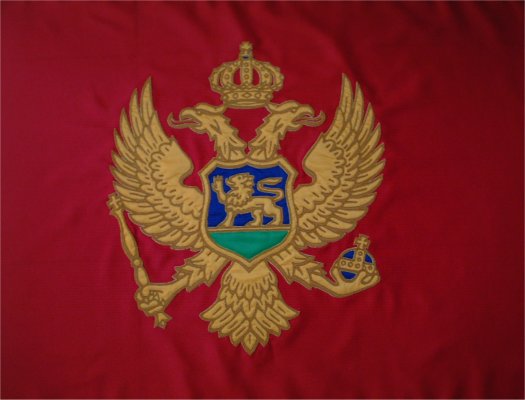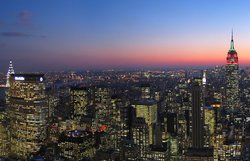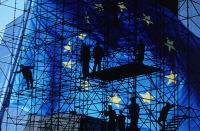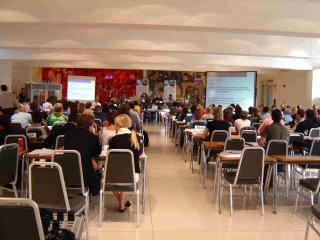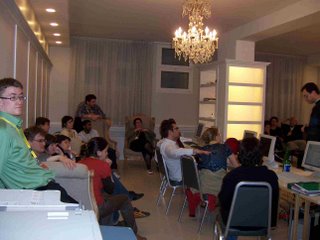Last weekend I was in Portugal. I went for some meetings, but, of course, going to meetings in Portugal it's always special... First of all, because I always have the opportunity to see my son and meet good friends I left there; but also because Lisbon is still the place where I feel at home. I love the light, the food, the ambiance. I love everything about Lisbon, and every time I go there, I realise how much I miss it.
Tomorrow, I'll go to New York. If I remember well, this will be my seventh or eighth visit to the city that doesn't sleep. But New York is the kind of places where I wouldn't mind going every month! I love it! The first time I went there, back in 1997, I attended a meeting at the UN. I went back two more times that same year, for the same kind of meetings. Then, I went back to New York in 2002, this time for professional reasons connected to my previous job with AFS. I've been there two or three more times for the same reason, later that year and, then, in 2003. Now, I'm going for a reason that, in many ways, it's a synthesis between the two: I'm going for a meeting held in the UN framework, dealing with issues connected to the dialogue of civilisations, something that is at the core of AFS values and work. I'm very excited about this trip and I'm only sorry that I will stay for such a short period.
I will come back to Europe already on Sunday... almost directly to Vienna, where I will attend another meeting. Then, later next week, I will travel to Greece. And, then, right before the end of May, I will go back to Portugal, to close the cycle.
It's funny... today, I celebrate one year since I have moved to Brussels and joined the European Youth Forum secretariat. It's been a very intense year, full of joy and happiness. It's also been a hectic year, full of work, many meetings and many travels. But, at the end of the day, the only thing that counts is that I'm not only enjoying it, but also learning a lot. With the support of all my colleagues, and the challenges ahead, I feel ready and looking forward for the year to come. And this is exactly what makes life beautiful: the thrill of finding out what comes next!


